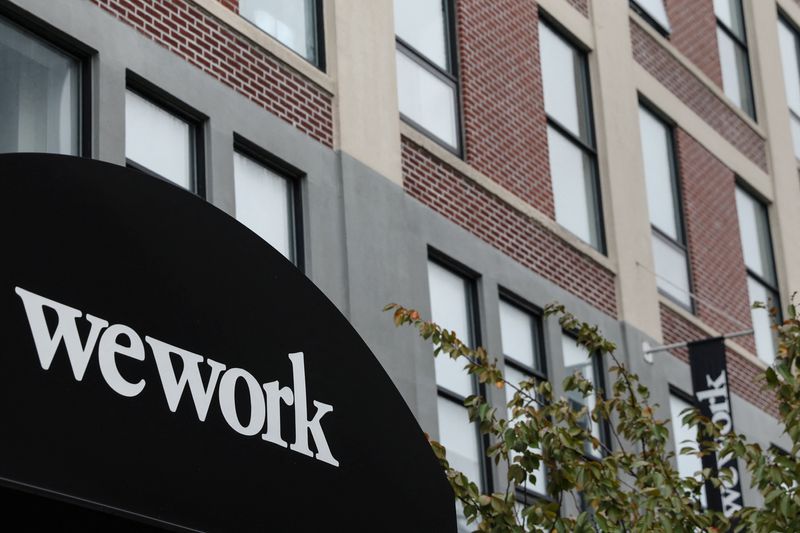By Dietrich Knauth
NEW YORK (Reuters) -Shared office space provider WeWork called on Wednesday for its landlords to make concessions on their leases during its first appearance in U.S. bankruptcy court, seeking to advance a restructuring proposal that could cut $3 billion in debt and shrink its real estate footprint.
The Softbank-backed company filed for bankruptcy protection in Newark, New Jersey, bankruptcy court on Monday, seeking to address more than $4 billion in debt and unsustainable future rent costs.
WeWork managed to renegotiate 590 leases before filing for bankruptcy, saving about $12.7 billion in future rent payments. But the company has more work to do to get rent costs under control, WeWork attorney Steven Serajeddini said at Wednesday's court hearing.
"Our financial creditors have made meaningful concessions, and we expect our landlords to do the same," Serajeddini said. "We want our landlords to know that there's definitely a first mover advantage here, and they should come to the table quickly."
The company has identified 69 leases it intends to break in the initial days of its bankruptcy, including 41 in New York City, and it could seek to reject additional leases later in its bankruptcy. WeWork said it is seeking to renegotiate terms on other leases with 400 landlords.
U.S. bankruptcy laws give debtors enormous leverage to walk away from leases, according to Ann Chandler, a real estate attorney who is not involved in WeWork's bankruptcy.
"So much of this is outside of landlords' control. There's really very little they can do during the initial stage of a bankruptcy," Chandler said.
WeWork, once valued at $47 billion, expanded at breakneck speed but racked up steep losses on its long-term lease obligations as more people began working from home during the pandemic and demand for office space plunged.
After an effort to restructure its debts failed to stave off bankruptcy, WeWork reached a restructuring agreement with over 90% of its bondholders to convert $3 billion of debt into equity in the company. Softbank, which currently owns about 70% of the company, would retain an equity stake under the proposed restructuring.
U.S. Bankruptcy Judge John Sherwood, who is overseeing WeWork's Chapter 11 proceedings, at Wednesday's hearing signed off on initial steps in its case, including routine requests such as continuing to pay its 2,700 employees and critical vendors like building maintenance and cleaning services.
WeWork entered bankruptcy with approximately $164 million of cash on hand, according to court filings.
